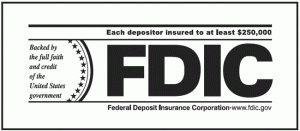What is identity Theft?
Identity theft occurs when someone acquires your personal information and uses it without your knowledge to commit fraud or theft. It is a serious crime and cases are growing. An all-to-common example is when an identity thief uses your personal information to open a credit card account in your name.
No matter how cautious you are, there is no way to completely prevent identity theft from occurring. But there are ways you can help minimize your risk. this page contains valuable information on how you can protect yourself by managing your personal information wisely, the warning signs of identity theft, and what to do if you do become a victim.
Helpful Tips
- Don’t give out personal information on the phone, through the mail or over the Internet unless you initiated the contact or know whom you are dealing with
- Don’t carry your Social Security card with you; leave it in a secure place. Carry only the identification and credit and debit cards you need.
- Don’t put your address, phone number, or drivers license number on your credit card sales receipts.
- Social Security numbers or phone numbers should be put on your checks.
- Shred all charge receipts, copies of applications, insurance forms, checks and bank statements, expired credit cards, and credit offers you get in the mail.
- Secure your credit card, bank, and phone accounts passwords. Avoid using easily available information like birth date, last four digits of your SSN, or phone number. When opening new accounts, you may find that many businesses still have a line on their applications for your mother’s maiden name. Use a password instead.
- Secure your personal information at home, particularly if you have roommates or hire outside help.
- Promptly remove mail from you mailbox. If you are planning to be away from home and can’t pick up your mail, call the U.S. Postal Service at 1-800-275-8777 to request a vacation hold.
- Ask about information security procedures in your workplace. Find out who has access to your personal information and verify that records are kept in a secure location.
- Before revealing any personally identifying information (for example, on an application, find out how it will be used and secured, and whether it will be shared with others.
Check your credit report
Order a copy of your credit report from each of the three major credit-reporting agencies every year. Make sure it is accurate and includes only those activities you have authorized. All consumers are entitled to one free disclosure every 12 months upon request from each nationwide credit bureau and from nationwide specialty consumer reporting agencies. See www.annualcreditreport.com for additional information. The law allows credit bureaus to charge you up to $9.00 for a copy of your credit report.
By checking your report on a regular basis you can catch mistakes and fraud before they wreak havoc on you personal finances. Don’t underestimate the importance of this step.
Credit Bureaus
Equifax- www.equifax.com , 1-800-685-1111, to report fraud, call 1-800-525-6285
Experian- www.experian.com, 1-888-397-3742
TransUnion- www.transunion.com, 1-800-916-8800, to report fraud call, 1-800-680-7289


